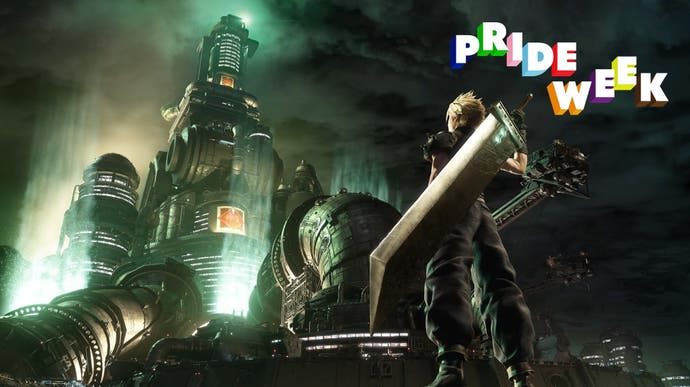Final Fantasy 7 - the perfect queer epic for Pride in lockdown
Introducing a week of LGBT+ stories on Eurogamer.
Hello! All this week we'll be celebrating Pride and the power of positive representations in games. Every day we'll be bringing you stories and insights from different parts of the LGBT+ community. You can also help support Pride with Eurogamer's newly redesigned t-shirt - all profits from which will be going to charity.
In the midst of a recent replay of the original Final Fantasy 7, I found myself welling up. Not because I'd reached that bit - the mandatory, number-one entry in every 'gaming's top ten saddest moments' list from now till the Lifestream runs dry. No. The tears were rising much earlier in my playthrough than that. And those tears were accompanied by a big goofy grin. What in this gloriously janky PS1 classic that I hadn't picked up in almost fifteen years could have had such an effect on me?
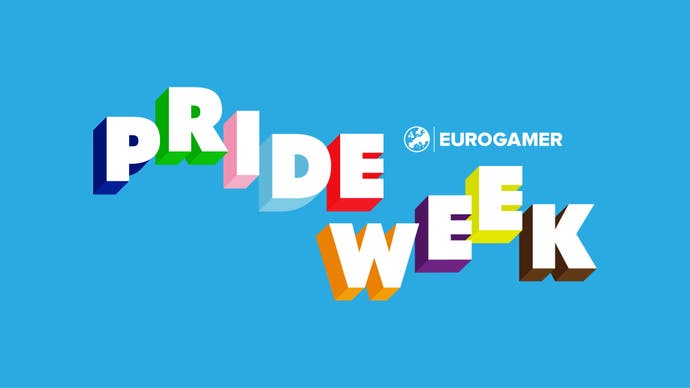
I was in Wall Market - Midgar's gleefully ungentrified equivalent of San Francisco's Tenderloin, or London's Soho, a century ago - and the game's taciturn, hyper-masculine, ex-mercenary protagonist, Cloud, had just donned an extremely pretty silk dress. Not only that, but he'd put on a blonde wig he'd won from a body-builder at a local gym, splashed on some sexy cologne, and had just had his make-up done by a burlesque dancer. And, to top it all, upon emerging from the dressing-room to reveal his transformation, he had been greeted with utter delight by the friend, ally, and (though it pains the Clifa stan in me to say it) love interest who had accompanied him there.
The reason I was crying was because, here, in chunky polygonal miniature, was my entire experience of coming out as a non-binary trans person.
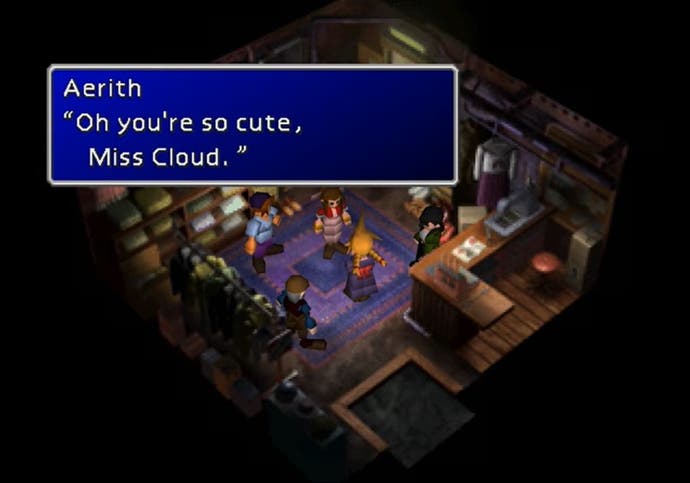
Okay, maybe not my entire experience. I didn't start wearing make-up and femme clothing as part of an elaborate plan to rescue my childhood sweet-heart from the clutches of a local sex criminal, and Cloud's family weren't around to worry about what the neighbours might think. But, the key components were all there: the thrill of a new wardrobe; the unforeseen generosity of strangers; the relief that comes from the support and acceptance of friends and loved-ones; and, above all, the quiet euphoria of suddenly looking the way you'd never even realised you wanted (or needed) to look before. Heck, even the frantic squat-driven glow-up at the local gym was present and correct.
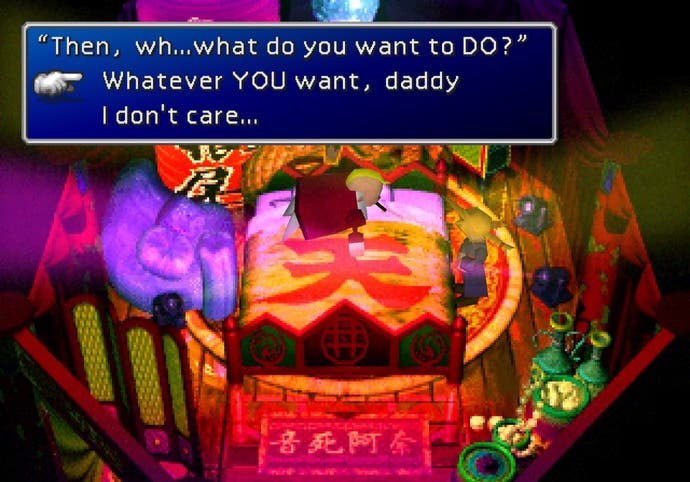
I concede, I may have been projecting just a little. But, if there is one thing that queer culture and, indeed, gaming culture, have taught me, it's that queer people find representation wherever they can, and that, often, those discoveries occur in the most unexpected of places. And here was an echo of the moment at which my gender identity suddenly 'clicked' for me, captured in a game I had played and replayed as a kid. It was uncanny.
Admittedly, the fact that I had the uncanny feeling of suddenly finding my queerness so clearly reflected in a game I had loved as a child while playing Final Fantasy 7 should, perhaps, have come as no surprise. To paraphrase Paris is Burning: it is a known fact that Final Fantasy 7 do be as camp as a row of tents and as queer as a nine-bob note.
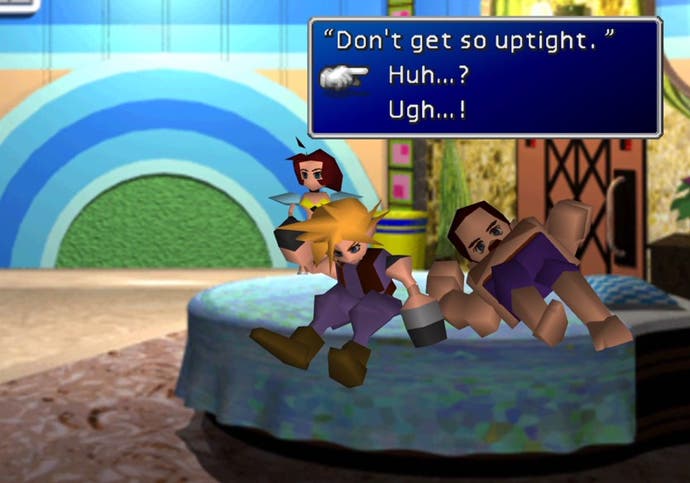
Rightly described by Eurogamer's Aoife Wilson as a 'bi thirst-trap', Final Fantasy 7 buzzes with enough queer energy to power a thousand Sister Rays. Whether it be Cloud's journey of self-denial and self-discovery (coming-out story much?), Tifa's status as the living embodiment of soft-butch energy, Reno's status as a chaotic bisexual pinball (you just know he and Rude met on Grindr), Jessie's omnidirectional flirtation, the way everyone talks about Cloud's eyes, the fact that everyone is wearing a harness, or Sephiroth's, like, entire deal (if you ever thought a twink couldn't also be a leather daddy, he's here to prove you wrong), the game is, if you'll pardon the expression, queer af.
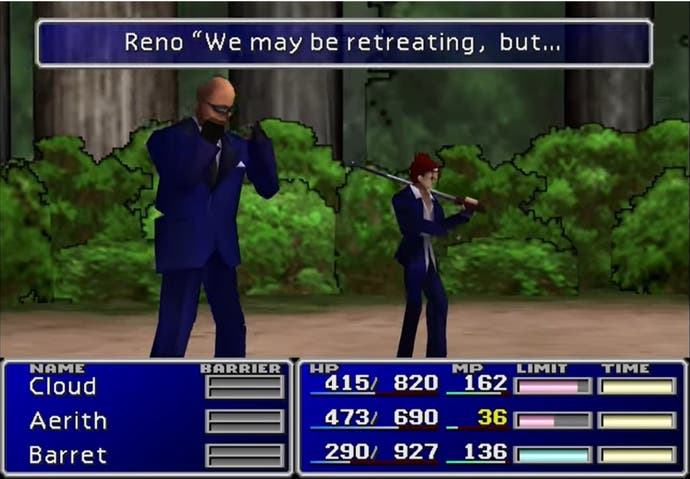
But, aside from being almost impossibly horny with virtually no concern for the gender of the parties involved - a feature the recent Remake has turned up to 11 - the game is also queer in deeper, more meaningful ways; ways that resonates strongly with the origins of Pride month, and its roots in a tradition of anti-assimilationist political protest.
A key figure in this regard is Barret (or, as he may be known to some of you, 'Gunny'). In terms of representation, the game's off-beat tone and broad-brush-strokes story-telling sometimes leave it seeming... unnuanced. At its worst, Barrett's characterization in the original game comes off feeling like the production team watched a couple of re-runs of The A-Team and that music video where B.A. Baracus told us all to be nice to our mums and decided that they had learned all they needed to know about Black people (a serious problem in an industry as White-washed as gaming). But, without wishing to downplay these problematic elements, it is worth taking stock of who we ultimately discover Barret to be across the course of the game: a Black, physically-impaired adoptive father and climate activist, whose lost hand forms the basis for a narrative not of disability, but of empowerment, as he engages in a liberationary struggle to protect his local community and the planet at large from the toxic influence of a militarised form of corporate capitalism.
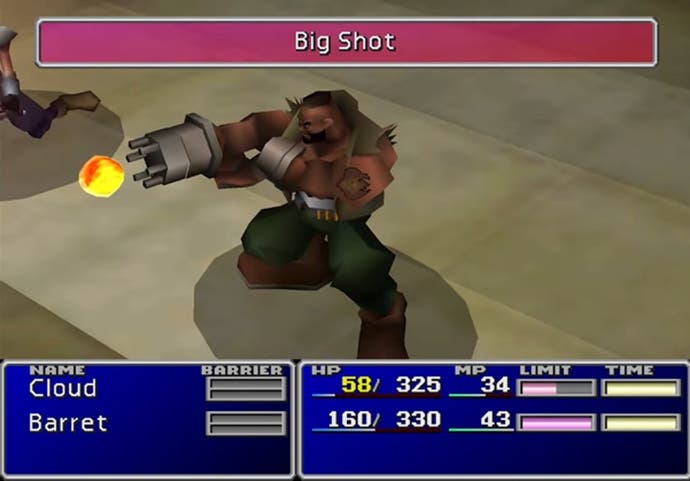
Like so many queer people who find themselves at the intersection of multiple forms of violence and oppression, Barret surrounds himself with a diverse team of like-minded individuals, united not by externally imposed categories of identity, but by a shared set of values and a desire to change the world for the better. This chosen family - for, what is the 'party' in an RPG if not a version of the 'chosen family' of friends, partners, and allies upon which so many queer people rely? - comes to include not just a former member of SOLDIER like Cloud, who turns his skills and training against the oppressive forces he once served, but a figure like Nananki / Red XIII, a character whose story parallels those of many Indigenous and First Nations people whose lives, land, and heritage have been devastated by corporate imperialism. Like the Stonewall rioters, the Gay Liberation Front, Street Transvestite Action Revolutionaries, Lesbians and Gays support the Miners, the AIDS Coalition to Unlock Power, or the queer activists currently taking to the streets to support Black Lives Matter, AVALANCHE - the revolutionary band of eco-warriors Barret founds and leads - take a stand against a society, culture, and political system that seek to oppress them and exploit the planet they inhabit.
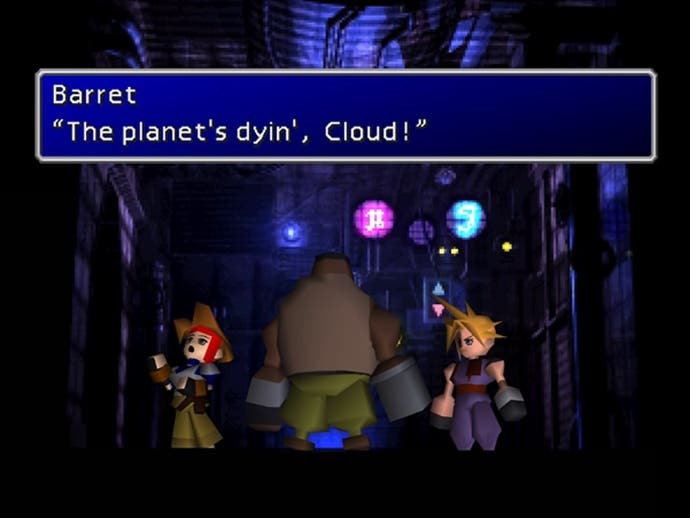
This is not to claim that everyone in AVALANCHE or Final Fantasy 7 at large is 'queer' in the same-sex attraction / gender non-conformity sense of the word (though, again, does anyone really believe that the Turks aren't living together in a gloriously messy, pansexual polycule?) But, if, as one influential theorist has it, 'queer' refers to 'whatever is at odds with the normal, the legitimate, the dominant', then Barret and AVALANCHE are about as queer as they come.
It is for that reason that, with Covid-19 necessitating the cancellation of in-person gatherings across the globe, I recommend Final Fantasy 7 to you as the perfect way to bring the spirit of Pride month to life in your living room. Whether you think Pride should be a protest or a party (hint: it should be the former), Final Fantasy 7 is both, and, in its depiction of a radically inclusive chosen family squaring off against a militarised, corporate police state to protect marginalised communities and the environment, it has never been more timely.
So, do yourself a favour, unfurl your rainbow flag, boot up the game, and try to decide which character you fancy the most. In the meantime, if you'll excuse me, I have to see a body-builder about a wig...
For a fun and accessible introduction to queer theory and queer history, check out Meg-John Barker and Jules Scheele's gorgeously illustrated Queer: A Graphic History (2016). If you are interested in thinking about gaming from a queer perspective, Adrienne Shaw's Gaming at the Edge: Sexuality and Gender at the Margins of Gamer Culture (2014) and Queer Games Studies (2017), edited Bonnie Ruberg and Adrienne Shaw, are a great place to start. To learn more about the history of Pride and the queer liberation struggle more generally, you may wish to explore some of the books listed here. For some beautifully written reflections on the intersections of race, sexuality, gender, and disability, take a look at the work of Audre Lorde, particularly her essay collection Sister Outsider (1984). Two books I have found particularly resonant in my own gender journey have been C.N. Lester's Trans Like Me (2017) and Nonbinary: Memoirs of Gender and Identity (2019), edited by Micah Rajunov and Scott Duane. To support QITPOC (Queer, Trans, Intersex, People of Colour) charities and organisations in your area, check out this list for the UK, or this list for the US. Also, everyone go watch Paris is Burning (1990). Right now. I'll wait.
